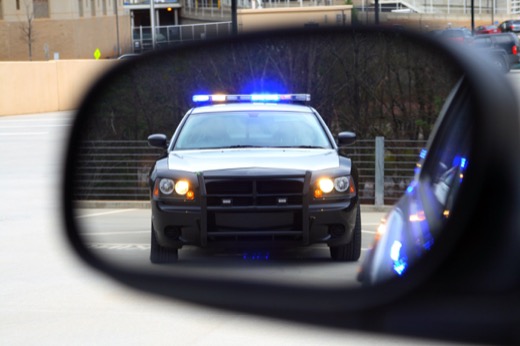South Carolina criminal law, like similar criminal laws of other states across the nation, separates its criminal offenses into “violent” and “nonviolent” crimes. When someone mentions the term “violent crime” it often brings up extremely graphic images in your mind of blood and severe injury – even death of another. While this scenario is a fitting example of a violent crime, it isn’t the only type of offense that is considered violent under South Carolina state law. Generally, a act is considered a violent crime when it results in the serious injury or death of another. If the act would have a high likelihood of the same result – serious injury or death – it is also considered a violent crime in the eyes of South Carolina law.
Violent Crimes
South Carolina has a full list in its Code of Laws stating which crimes are considered violent under state law. Because of this exhaustive list, any criminal offense that is not explicitly named in the list of offenses is not considered a violent crime. Below are the crimes specified in under state law, separated by general categories.
- Clearly violent – these are the more obvious violent crimes, which will typically not be contested by the public at large as being labeled as violent. The obviously violent criminal offenses include: murder; attempted murder; voluntary manslaughter; assault and battery by mob which results in the death of another; aggravated assault and battery; armed robbery; attempted armed robbery; kidnapping; human trafficking; child abuse that results in a homicide; aiding and abetting child abuse that results in a homicide; inflicting great bodily injury – or allowing another to do so – upon a minor; aggravated criminal domestic violence; elder abuse or neglect which causes great bodily injury or death; and taking someone hostage while the offender is imprisoned.
- Violent property crimes – South Carolina state law considers some property crimes involving force as a violent crime. Examples of a property crime that involves violence includes: carjacking, second degree arson, first degree burglary, and second degree burglary.
- Deliberate destruction of property – when someone purposely destroys property and a death results, state law classifies this as a violent crime. Examples of violent destruction of property include: detonating a bomb on South Carolina’s capitol grounds; detonating a bomb in general; damaging an airport facility or removing equipment; interfering with air traffic control devices, railroad signs, or signals; putting destructive or injurious materials on a highway; obstruction of a railroad. Of note, all of these acts must result in a death in order for South Carolina law to consider it a violent crime.
- Extreme drug crimes – drug crimes that are more more dangerous than others are viewed as violent offenses by South Carolina. Extreme drug crimes include cocaine trafficking; making or trafficking meth; operating a boat under the influence of drugs which causes a death; driving under the influence resulting in the death of another; or driving with a blood alcohol concentration (BAC) level that is above the allowed amount which in a death.
- Sexual criminal offenses – South Carolina – and other states across the nation – treat sexual crimes as violent offenses. This is particularly true if the crime involves forcing or coercing another into performing sexual acts. The state’s list of sexual criminal offense which are considered violent include: second degree criminal sexual conduct; first, second and third degree criminal sexual conduct with minors; first and second degree assault with the intent to commit a criminal sexual act; soliciting and/or engaging a minor for a sexual act; sexual battery upon your spouse; producing, directing, or promoting child pornography; first or second degree sexual exploitation of a minor; promoting child prostitution; participating in child prostitution; and aggravated voyeurism.
- Negligent or unintended injury or death crimes – these crimes are different in that when committed there is no intent to cause serious injury, much less death. Nonetheless, the state of South Carolina classifies these as violent. These crimes include a hit and run that caused a death; not stopping when signaled by law enforcement which results in death; and a boat operator’s failure to assist another which resulted in death.
Appealing Your Case
In South Carolina and across the nation, criminal defendants generally have the right to appeal a criminal conviction immediately after sentencing is imposed. This right to be heard in an appeal is limited by narrow filing deadlines that must be met in order for the accused to preserve this right. A notice of appeal, which lets the court know – in writing – of the defendant’s intent to appeal the conviction, must be filed within a matter of mere days after sentencing or from the order to be appealed. If this deadline is missed, the defendant loses his or her right to appeal the case. Beyond an ordinary appeal, South Carolina criminal defendants may pursue state civil post-conviction relief and federal habeas corpus actions.
It is important to note that the type of trial court where the case was heard will determine which court is appropriate to submit a criminal appeal. Criminal trials in South Carolina include several courts: Magistrate courts, Municipal Courts, Courts of General Sessions and the Federal District Court for the District of South Carolina. Generally, the criminal charge determines where the case is initiated.
Other Things to Know
South Carolina law not only views the act of committing these offenses as violent crimes, but the attempt to commit any of these offenses is also considered a violent crime under state law. In other words, even if you are not successful in accomplishing one of the above mentioned crimes, you could still be charged with the offense if you are found to have attempted to commit the crime. Furthermore, like many other state’s criminal laws, being an accessory to a violent crime – or helping someone else commit the violent crime – can result in being personally charged for the offense.
Sometimes, children who commit violent crimes are tried as adults in South Carolina. Whether or not a minor is charged as an adult depends upon what the prosecutor decides – as well as what the presiding judge allows. For these reasons, whether a minor will be tried as an adult in South Carolina is specific to the case that is before the court.
Likewise, how much prison time a judge may impose on someone charged and convicted with a violent criminal offense depends upon the particular facts of the defendant’s case. The type of criminal offense may not directly influence the length of a jail sentence, but may affect where you are incarcerated if you are actually convicted of the crime.
Criminal Defense Help
If you or someone you know has been charged with a violent crime in South Carolina, contact a knowledgeable criminal defense attorney as quickly as possible. The sooner you have legal representation fight for your rights, the better. Call the Law Office of H. Chase Harbin today for a free consultation. The attorney can help guide you through each phase of the criminal charges.

Chase Harbin is a Criminal Defense Lawyer who practices in Pickens and Greenville, SC. He graduated from the University of South Carolina School of Law, and has been practicing law for 17 years now. Chase Harbin believes in defending the accused. Learn more about his experience by clicking here.


